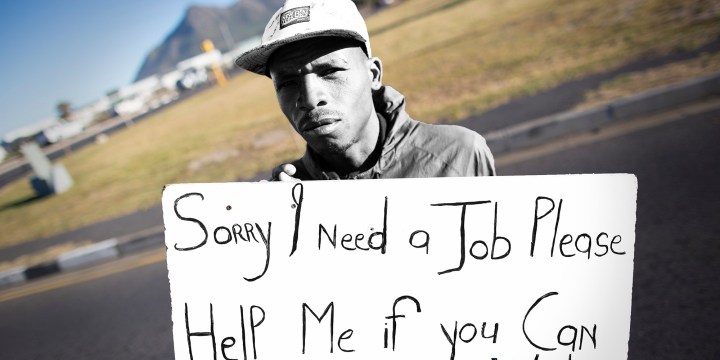STATE OF THE NATION
Youth in job programmes are more likely to find work, study finds

Young people who participate in youth employment programmes are 9% more likely to get jobs, according to the Siyakha Youth Assets Study.
The Siyakha Youth Assets Study found that even though employment programmes helped young people in getting jobs, 54% of those who had been involved in the programmes remained unemployed in South Africa’s shrinking jobs market.
The study, released at the University of Johannesburg on 12 June 2019, found that only 27% of those who received training were able to find work and had a 9% advantage over those who had not gone through any employment programme.
The study, published by the Centre for Social Development in Africa, followed youth who went through the Harambee Youth Employment Accelerator, Lovelife groundbreakers, Fit For Life Fit For Work, Thabiso Skills Institute, Raymond Ackerman Academy, National Youth Development Agency, YouthBuild Programme, Afrika Tikkun Training Services and EOH learnership programmes.
The study noted “higher self-esteem” and an increase in “odds of seeking work” among the youth who participated in the programmes.
According to Lauren Graham, a developmental sociologist, although some remained unemployed they demonstrated resilience through self-esteem and efficacy, in how often they searched for work and repetitive job applications.
Graham stressed that in South Africa’s labour market, it was unrealistic to expect full employment considering that the gross domestic product shrank by 3.2% in the first quarter of the year.
Principal investigator Leila Patel said the Siyakha Youth Assets Study was founded in 2012 during a symposium in Cape Town, with the aim of “seeking solutions to the growing challenge of youth unemployment” through a “coalescing of champions, organisations and ideas at a particular time”.
Siyakha, isiZulu for “we are building”, aims to develop young people for employability.
The global unemployment level sits at 30%, but South Africa is an outlier with 54% of young people out of work. Since 2008, with the global recession, the unemployment numbers had spiralled downwards with the contraction of the economy, said Patel.
Zaheb Khan, a study researcher, said matching services, which facilitate relationships between job seekers and employers, and soft skills training were ranked highest as aspects that improved employability.
Matching the services that employers wanted with the skills that job seekers had was associated with a 28% improvement in employment capability, said Khan.
Furthermore, Khan noted that the more time spent on human capability skills, or soft skills, the better the chances of employment, fewer months unemployed and increased persistence in work seeking.
Traits such as work experience and technical skills training followed as critical skills for a job seeker to have.
Furthermore, Khan noted that financial capability intervention for young people in need also improved employability, mitigating the cost of finding a job.
Fezewa Mpaku participated in the Raymond Ackerman Programme and went on to become an entrepreneur. She now owns a construction business and said she benefited a lot from the programme.
However, she also stressed the importance of mentorship following the programme so that young people did not get lost at a time when they needed guidance the most in business and the job market.
Donal Mula also participated in the Raymond Ackerman Programme and runs the African Dreamers interiors company. The business was already operational when he went into the programme.
When he started, Mula said, he only had the “burning desire” to start a business but lacked the skill to do so. And what he had learnt from the programme was the difference between starting a business and sustaining it.
Mpaku said that more youth remained unemployed due to lack of mentorship and a disconnect between skills and work in the Fourth Industrial Revolution.
The study found that youth employment programmes played an important role in supporting young people as they navigated the labour market. They were “critical sites for promoting human capability skills, facilitating access to information about the labour market and for mediating an interface with employers for young people”.
It concluded: “Continued investment in programmes that provide support to young people to increase their human capability skills and access information about how to look and apply for work and actively match young people to potential employers remains critical.” DM


















 Become an Insider
Become an Insider